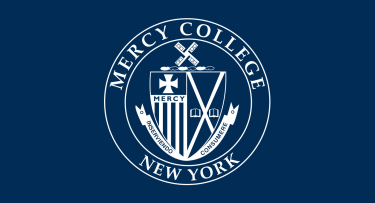Mercy College Hosts Former UN Ambassador to Speak on the Global Impact of COVID-19

On Wednesday, April 29, as part of its International Speakers Series, Mercy’s Center for Global Engagement (CGE) hosted a virtual presentation by the Honorable Ahmed Kamal, former Ambassador to the United Nations (UN). The topic of the presentation was the coronavirus (COVID-19) pandemic and its impact on globalization.
Dr. Sheila Gersh, director of the CGE, invited Kamal to share his insights with an audience of about 30 Mercy faculty, students and other guests using the video conferencing platform Zoom. Professor Michiko Kuroda, Visiting Fellow at the CGE, introduced the Ambassador, adding, “During my career at the UN, Ambassador Kamal was well known for being a tough negotiator.”
Kamal served as a Pakistani diplomat for nearly 40 years, dedicating most of his career to multilateral diplomacy. He has held several key leadership positions at the UN and trained hundreds of diplomats. He is the author of numerous publications on a range of topics including the global economy and information technology.
“The Center deals with every type of global issue, and there has never been a more relevant topic than the COVID-19 pandemic, which is affecting literally every person on the planet,” said Gersh. “Longstanding problems across the globe, such as poverty, hunger, inadequate healthcare and limited access to education, have been exacerbated by the coronavirus.”
In his 90-minute presentation, Kamal honed in on three aspects of the pandemic: the virus itself and how it is affecting people around the world; globalization, loosely defined as the growth of complex interactions among people, businesses and governments worldwide; and a forecast of what the future holds as the world seeks to overcome the current health and economic crisis.
Taking questions from the virtual audience, the Ambassador compared the pandemic to historical events like the SARS epidemic and the Great Depression, pointing out the many positive societal changes that can arise out of hardship. “Whereas historically the contributions of essential workers might have been taken for granted, in the current environment such workers are being hailed as heroes,” he said.
Kamal also predicted changes in the workplace, with more widespread use of technology for work and learning, building upon what the world has been experiencing in lockdown. He stressed the need to reconsider our values, adding that a trend toward giving back and helping the less fortunate has been on the rise since the start of the pandemic.
“People are showing their best now. They are stepping up, applauding teachers, medical workers and all of the unsung heroes of this pandemic,” he said. “We have to continue thinking of them as essential, and direct resources and support where it is truly needed.”
